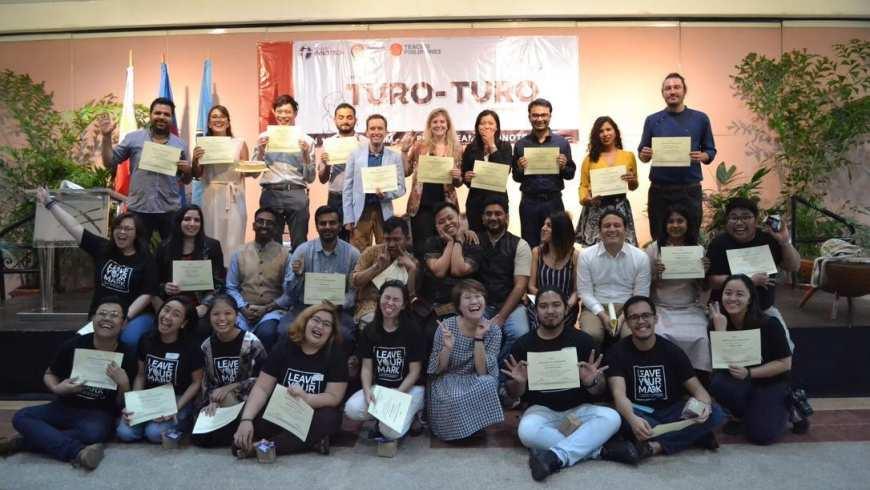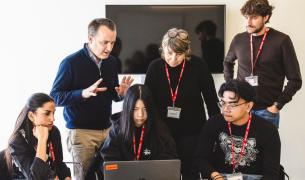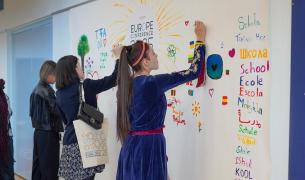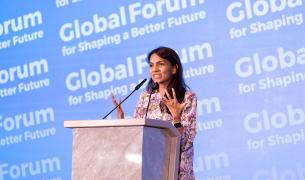Leading and Learning about Education Policies: A Network Alumni Community Convenes in the Philippines

Teach For All’s Global Community of Practice in Education Policy is a self-led community of alumni of network partners who work in the education policy and research sector. Since its launch in 2017, the community, which currently includes 51 members from 12 countries, has continued to learn with and from each other both virtually and at annual in-person gatherings. Following on the success of previous events in Peru, Finland, and India, the group met in January in Manila for their fourth in-person gathering, which was focused on gaining a broad understanding of the Philippine education system and strengthening the community’s partnerships, discussions, reflections, and friendships.
The following are reflections on the event from four members of the Community of Practice:
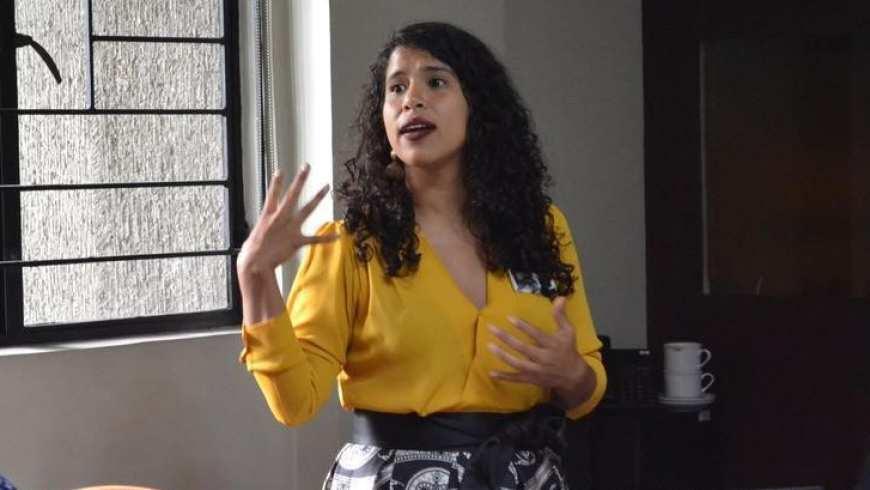
Liz, Enseña Perú:
As a Peruvian, I could see many similar challenges between the Philippines’ education system and Peru’s. Our community gained an understanding of the system through the eyes of former and current officials in the Department of Education, and from teachers and teacher trainers’ perspectives on what was needed to improve their jobs. We discussed the complexity of implementing English as a language of instruction in an educational structure that is heavily influenced by the United States, debated the implications of establishing the K-12 curriculum, and reflected on the difficulty of having to teach so many required competencies. We also discussed the 2018 results of the Programme for International Student Assessment (PISA) and its impact on public policies, as it was the first time that the Philippines participated in the assessment.
During the event, I wrote in my notebook six different times, “Evidence-based decisions,” which is something we are always mentioning as a mantra—but are we truly internalizing the implications of this mindset? Or better yet, are we prepared and willing to investigate and read investigations to improve our practices at every level? I continue to consider these questions as I reflect on our shared experience.
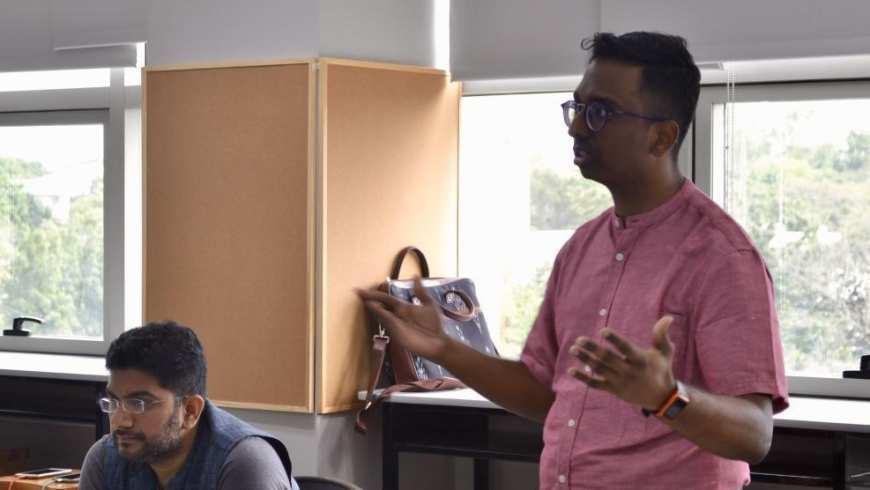
Siddesh, Teach For India:
One of my biggest takeaways from the gathering in the Philippines was the intentionality with which Teach for the Philippines engages with the Department of Education and the government in general. They cultivate this engagement through a one-year Alumni Ambassadors Program, and by supporting the many alumni in the policy pathway (50%) who go on to join the Department of Education to effect change from within. It was inspiring to see such a nuanced understanding of politics and active participation in the workings of the government from all the young alumni. This has sparked some ideas for us to attempt a joint fellowship for Teach For India alumni and representatives from the government to try and lay the foundation for collective action in our own context.
What helps me to learn is to be comfortable with the group of people with and from whom I’m learning. If I can be myself, express my views frankly, and genuinely know that people’s intention, even while debating, is to have a deep discussion rather than a competition, then I am at ease in a space. Our community truly creates that kind of space and much more—their sensitivity, diversity of experiences and perspectives, willingness to push the group, and acceptance of diverse views is truly exceptional. I look forward to continuing our collective learning journey as a global community and leveraging the inspiration from all of its members whom I have come to admire.
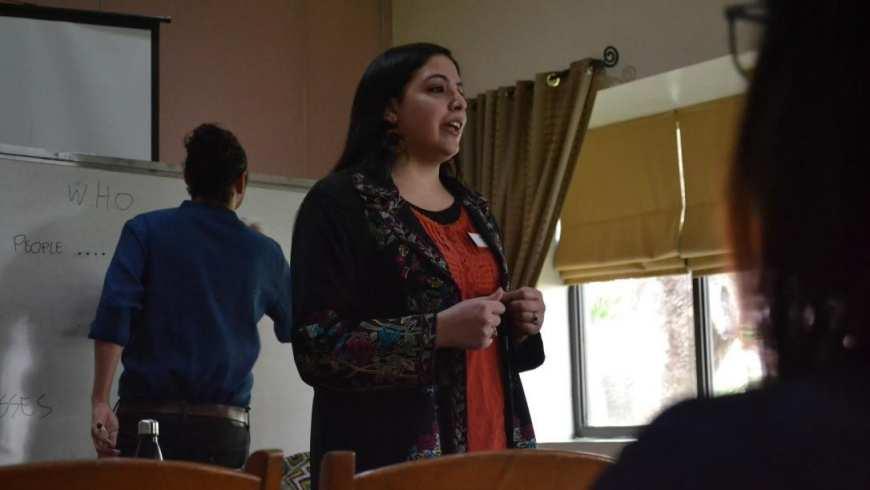
Hikmat, Teach For Lebanon:
I’ve been reflecting most on the courageous education reforms the Philippines have enacted recently, and the impact they’re having on the lives of students and their families. I was amazed by how much evidence of women’s empowerment I encountered, whether it be women’s leadership in the education and political sectors, the belief in a better tomorrow led by women, or simply the huge respect and trust in women I saw all around. I was also impressed by the awareness the teachers I met have regarding the country’s current education challenges, and their constant efforts to voice these concerns to local governments—as well as the fact that the government has dedicated a special office to those concerns and formulate policies that tackle them.
I had the chance to visit a school, overcrowded with students and with few resources like any other public school in Manila, and observe a typical classroom. I was overwhelmed by the wonderful energy of the teacher and the students, and I also learned how exhausting a public teacher’s work is in the Philippines, between their duties as educators and caregivers, to the long list of preparations they’re required to do, to the endless piles of paperwork they must go through. I can only salute their courageousness, patience, and love for being the front liners and soldiers shaping the future of the next generation. On the last day of the event, I had the chance to interact with several teachers from across Manila and learn about the great ideas they have, their visions for their students, and the informal policies that they developed and enacted in their own classrooms with their students’ interest at heart.
As a community, we reflected at the end of every day on what we’d learned about the education system in the Philippines, engaged in discussions, brought our own knowledge and experience to the table, and drew lessons enriched by all of our nations, cultures, and systems to bring back to our homes and incorporate in future policies. My experience as the newest member of this community can be summed up in three words: eye-opening, heartwarming, and inspirational, and I cannot wait until we meet again.
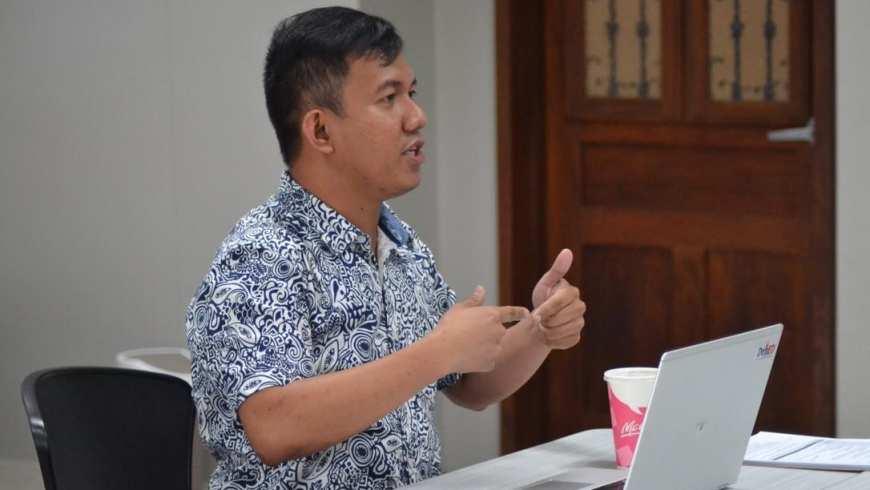
Emiljohn, Teach for the Philippines (event co-organizer):
For me, our event in Manila was a convergence of three communities close to my heart—the Global Community of Practice in Education Policy, the education community of the Philippines, and the Teach for the Philippines alumni community—and my biggest takeaway is the value of bringing together multiple communities to start discussions and spark change.
One of the most meaningful things about co-leading the event was the opportunity to work with the education community of the Philippines, particularly the vanguards of the Philippine education system. In conceptualizing the event, my co-organizer Carlo and I envisioned telling the story of the Philippine education system using different lenses. We wanted the group to understand the Philippines from a historical level, its current political context, and how education policies are formulated and implemented in our schools. We met with former secretaries, current officials and personnel of the Department of Education, development partners, and teachers, who shared their thoughts, ideas, and dreams for the Philippine education sector. During the event, I took off my Department of Education (where I work) hat, replaced it with a curiosity hat, and allowed myself to look at the Philippine education system from different perspectives. The experience inspired me personally and professionally to continue moving forward to address the challenges facing our system.
The coming together of the Teach for the Philippines alumni community was also exciting for me. Working with co-organizer Carlo allowed me to get to know him deeper as an education advocate and friend, as we learned from the process together and guided the team in executing our vision for the event. And I was in awe of the willingness and efficiency of the alumni volunteers, who took time out from their day jobs to support us in making the gathering happen. While the event began with the eruption of Taal Volcano, the indomitable and resilient spirit of the Filipino was very much alive in the alumni community. Our bond went beyond logistics to a conversation on our respective roles in the change we want to see in our country.
